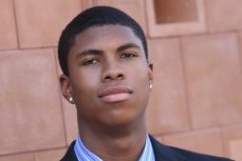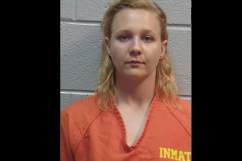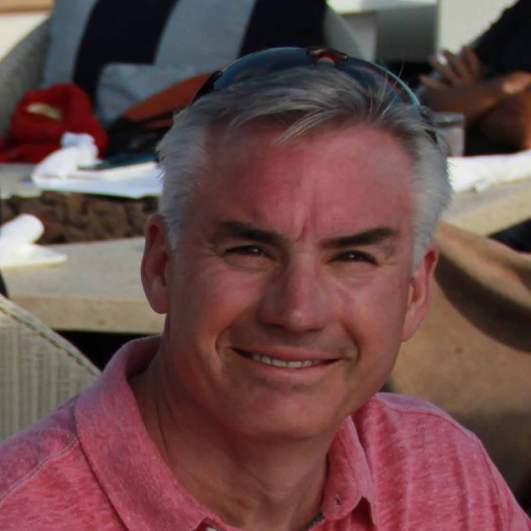
Raymond Liddy
A California state prosecutor and son of a prominent figure in the Watergate scandal was arrested on charges of possessing child pornography on July 25.
Raymond Liddy, 53, was taken into custody at his Coronado home and was booked into federal jail on the charge of possessing images of minors engaged in sexually explicit conduct, federal court documents obtained by Heavy said. He was released after posting $100,000 bond during his arraignment and has since been placed on home detention with GPS monitoring.
Liddy is the a California deputy attorney general and is the son of G. Gordon Liddy, who was an operative in President Richard Nixon‘s campaign attempt to burglarize the Democratic National Committee.
Here’s what you need to know:
1. Federal Authorities Acted on Tips That Liddy Had Uploaded Multiple Child Pornography Images to the Internet
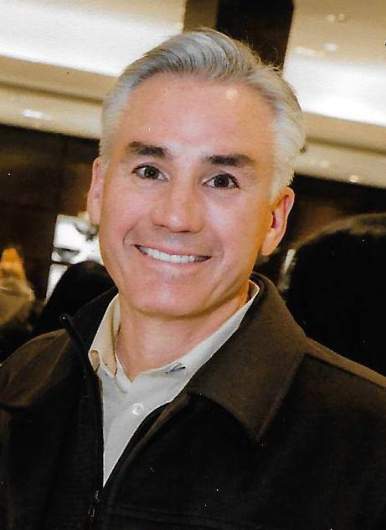
Raymond Liddy
According to the criminal complaint, the investigation into the child porn accusations started on January 23 after an internet service provider alerted the National Center for Missing and Exploited Children that a customer uploaded an image that appeared to be child pornography using a particular screen name.
A little over one month later, a different ISP sent a similar tip to the organization saying that a user had uploaded 10 child pornography images to a messaging program. The documents said that one of the images appeared to show a “nude prepubescent female sitting on a chair with her lags spread widely apart.”
Those tips were forwarded to authorities, who traced the illicit activity to Liddy’s Coronado home.
Read the full criminal complaint in the document below.
In May, the FBI obtained and executed a search warrant to investigate emails from the ISP, and one month later it executed a search warrant to take a look at chat logs. A review of the evidence showed that a user claiming to a 48-year-old married man with children uploaded the images from a profile.
2. Liddy Admitted to Being the User Associated With the Profile to Authorities

FacebookRaymond Liddy
Following the investigation and after gaining probable cause, federal agents interviewed Liddy at his home July 25. The criminal complaint stated he admitted that he was the person associated with the internet profile.
The court documents state that Liddy had a computer and a tablet in the home, and he used both of them to allegedly upload the images. He said that he used his screen name on an unidentified messaging program to “communicate with individuals on the internet about sexual fantasies.”
Liddy also told authorities that he would often save sexual images and then delete them, noting that on occasion he may have forwarded the images to other users. He claimed that a “majority” of the images were of adults, but also said it was possible some may have been children.
After the admission of guilt, agents searched the rest of his home and found “numerous images depicting minors engaged in sexually explicit conduct on a computer and a thumb drive” and took Liddy into federal custody.
3. Liddy Has Served as Deputy Attorney General for Almost a Decade
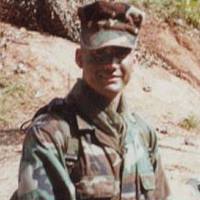
Raymond Liddy
Liddy serves as the deputy attorney general for California’s Department of Justice. According to his LinkedIn account, he represents California throughout the U.S. primarily in civil litigation cases related to Medi-Cal, California’s Medicaid program. He’s served in the position since February 2008.
In a statement to The San Diego Tribune, the AG’s office said that it was “aware of the matter” and has since placed Liddy on administrative leave.
Before being hired in the California AG’s office, Liddy was in private practice, his LinkedIn said. He worked as an attorney for Luce, Forward, a San Diego law firm that’s now known as Dentons LLP. He served as an attorney for the firm until the terrorist attacks on September 11, 2001. Then, he was deployed with a Marine Corps infantry battalion.
4. Liddy is a veteran of the Marine Corps Reserves

FacebookRaymond Liddy
Prior to his legal work, Liddy served in the United States Marine Corps Reserves starting in January 1986. He served for over 30 years and retired in September 2016, his LinkedIn said.
Before enlisting, he earned a high school diploma from Mercersburg Academy — a boarding school — in 1982 and then obtained his bachelor’s degree in history/English from Fordham University in 1986. He then pursued his law degree from Fordham’s School of Law and obtained his Juris Doctorate from the school in 1993. There, he was a on the Moot Court Board and was a cartoonist for the school newspaper.
Liddy was admitted in the State Bar of California on June 13, 1994 and also all Federal District Courts in California, U.S. Bankruptcy Court, U.S. Court of Appeals for the Ninth Circuit, and the U.S. Supreme Court.
In 2007, Liddy earned his master’s degree in strategic studies from the United States Army War College in Carlisle, Pennsylvania.
5. Liddy’s Father Is a Disbarred Lawyer &Amp; Was the Chief Operative in the Watergate Scandal
Liddy is the son of G. Gordon Liddy, a now-disbarred lawyer that’s best known for his time serving as the chief operative in the White House Plumbers special investigative unit in 1971. The group was tasked with stopping the leak of classified information to news media and was the subject of the Watergate scandal. The group committed illegal activities while working in Nixon’s re-election bid.
For his role in the scandal, Gordon was charged and convicted of conspiracy, burglary and illegal wiretapping in 1973. He and another man, E. Howard Hunt, organized and directed a burglary of the Democratic National Committee headquarters in the Watergate building. The men were arrested and charged for committing the crimes and refused to testify in front of Senate committees investigating the scandal.
He was sentenced to 20 years in prison, but had that commuted to eight years by President Jimmy Carter. He was paroled 4.5 years into his sentence.
After his release from prison, Gordon worked on a series of debates on college campuses and sat alongside many prominent people, such as Al Franken. He hosted a radio talk show in 1992 until he retired in 2012 and also appeared as a guest on Fox News Channel several times.

